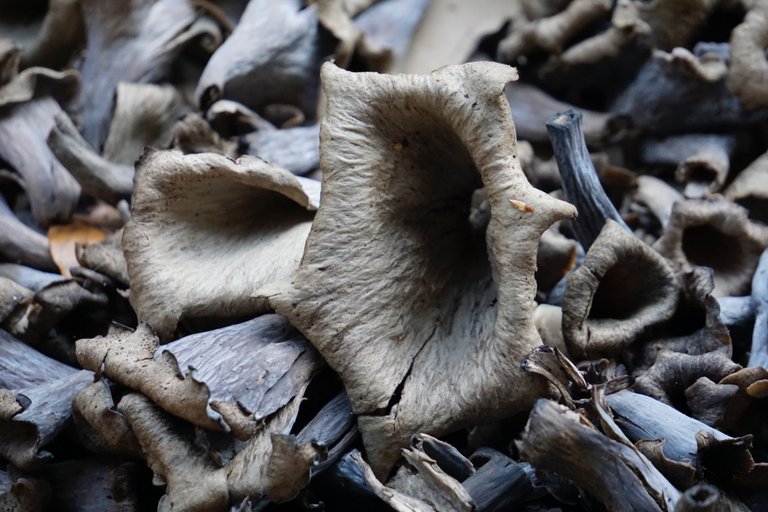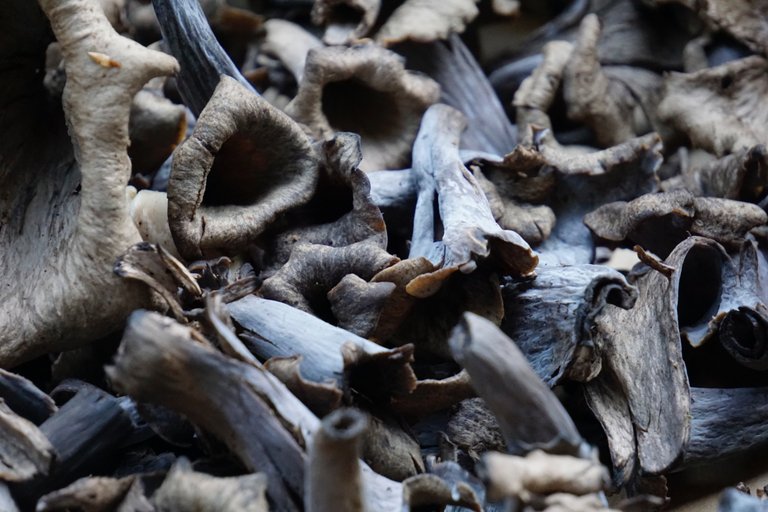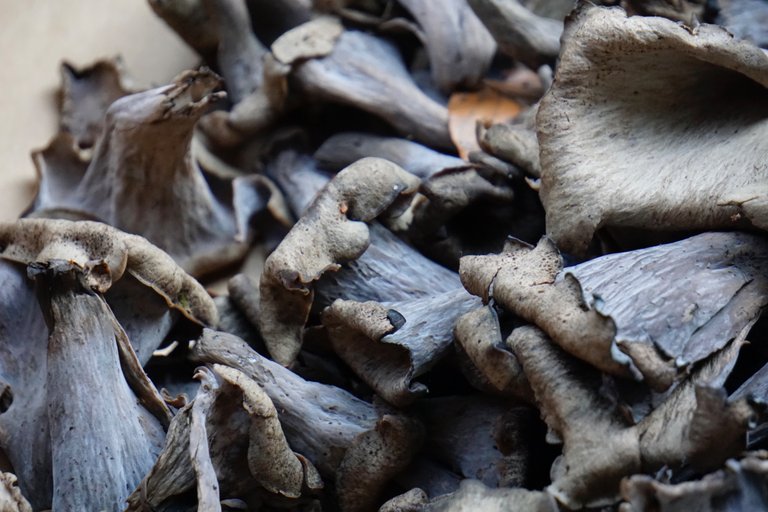Interesting facts about Black trumpet
Hey dear community, first of all I would like to welcome you all to my new post and hope you had a day that brought some interesting experiences into your life! In this article I would like to go into nature and hope you are able to expand your knowledge a bit.
You can see here some pictures of black trumpets which is also known under the scientific name Craterellus Cornucopioides and this mushroom which originally comes from Europe is a real delicacy which can be used in many ways. It was already described in 1753 by the Swedish naturalist Carl Linnaeus (1707 - 1778) under the name Peziza cornucopioides and today's valid name can be traced back to Christiaan Hendrik Persoon (1761 - 1836) who had dealt intensively with the research of mushrooms. It is found mainly in deciduous forests and require a warmer climate and occur in the warmer areas of Europe and the season begins in August and usually lasts until October and those who find larger quantities, can preserve them in different ways and it is good for drying or freezing and by the drying process, the aroma changes an gets even more intense and is also often used in the kitchen for seasoning food. Before consumption it is recommended to wash the fungus beforehand to remove contamination and just as with other fungi, it is important to heat black trumpets sufficiently and from a medical point of view, it is very interesting and can be used against serious diseases and the ingredients can help stimulate the entire immune system or neutralize toxic substances and can be used very well for detoxification and black trumpets are very crunchy in the fresh state and generally difficult to confuse with others when collecting. As always, I would like to mention that in case of illness you should always ask the doctor or pharmacist of trust about the correct use and possible side effects to avoid complications!
Thanks for stopping by and I hope you could learn something new about nature! I captured these pictures with my Camera Sony Alpha 6000 plus 55-210 mm lens.



Thanks for the support dear @qurator Team! Wish you a great start to the new weekend.
Interesting hive friend, I had never heard of this fungus, good topic to investigate
Glad that you were able to learn something new dear @cositav
https://x.com/lee19389/status/1838201348656877827
#hive #posh